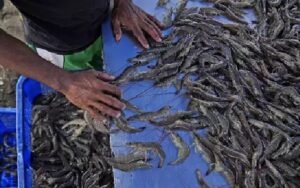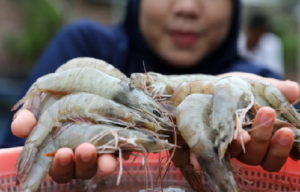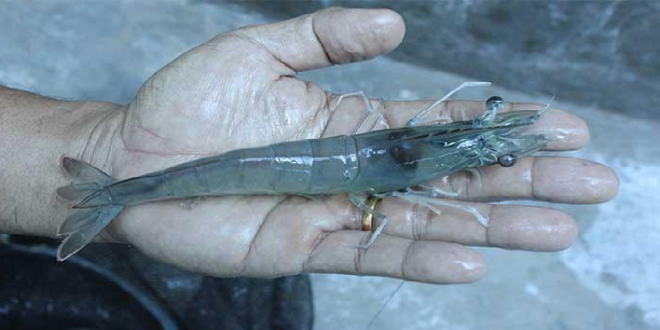04-10-2025
JAKARTA: Indonesia’s shrimp industry suffered a 30-35% drop in processing absorption after a radioactive contamination was detected in a batch of shrimp shipped to the US in August, the country’s shrimp farmers’ association said on Friday.
 The shrimp was processed at an industrial estate near Jakarta that was later found to be contaminated with of Cesium 137 and the Southeast Asian nation’s nuclear agency is seeking to pinpoint the size of the area affected.
The shrimp was processed at an industrial estate near Jakarta that was later found to be contaminated with of Cesium 137 and the Southeast Asian nation’s nuclear agency is seeking to pinpoint the size of the area affected.
Indonesia is the world’s fifth largest shrimp exporter, accounting for 6% of global exports. About two-thirds of its exports go to the United States.
While the radioactive finding was in just one shrimp consignment from one company, PT Bahari Makmur Sejati (BMS), US and other foreign buyers are now waiting to determine whether all shrimp from Indonesia is safe, said Andi Tamsil, the head of Indonesia’s shrimp farmers’ association.
Prices have fallen by up to 35% in several regions, he said.
“Since BMS was added to the US Food and Drug Administration’s red list, shrimp absorption from farmers has decreased by around 30%-35%,” Tamsil told media.
In 2024, Indonesia exported about 215,000 tonnes of shrimp, valued at about $1.7 billion, according to government data. The US is the main market for Indonesian shrimp, accounting for 63.7% of the total exports, followed by Japan.
“If this continues, millions of households that depend on this industry from upstream to downstream be at risk of losing their jobs,” Tamsil said.
The shrimp industry had become the victim of negligence and the incident had shaken public confidence, he added. “This fatal mistake has caused the US to question the safety of our food.”
Indonesia established a task force after the US FDA issued an advisory to American consumers, distributors and sellers not to eat, sell or serve frozen shrimp imported by BMS, doing business as BMS Foods, after their products were associated with Cesium 137 contamination.
 So far, the US FDA has listed, opens new tab 10 brands associated with BMS.
So far, the US FDA has listed, opens new tab 10 brands associated with BMS.
Cesium 137 is present in the environment mainly from past nuclear testing or accidents, like Chernobyl and Fukushima, according to the FDA’s website.
Indonesian authorities have found 10 points with radionuclide radiation for Caesium 137, Environment Minister Hanif Faisol Nurofiq told media, up from the initial six locations. The estate is still operating, but under close monitoring.
“We have declared PT PMT (Peter Metal Technology) as the epicentre with a 5 km perimeter,” Nurofiq said, adding a special incident status had been imposed at the estate.
He said movement had been limited there and teams of police, military and religious leaders were going door-to-door to inform people of the danger and ways to avoid it.
Authorities examined over 1,500 local people and workers and found nine were exposed, spokesperson Hasibuan said, adding those had undergone special medical treatment.
Decontamination measures were being taken and special equipment used on trucks entering and leaving to ensure they were free of contamination, he said.
PT PMT deals with non-ferrous base metal manufacturing and grinding, and set up in the estate two years ago, according to Indonesia’s law ministry registry reviewed by Reuters.
The nationality of the investors is not clear in the document, but it was set up by foreign direct investment. The company did not immediately respond to questions sent by media to a cellphone number listed in the registry. (Int’l News Desk)
 Pressmediaofindia
Pressmediaofindia




